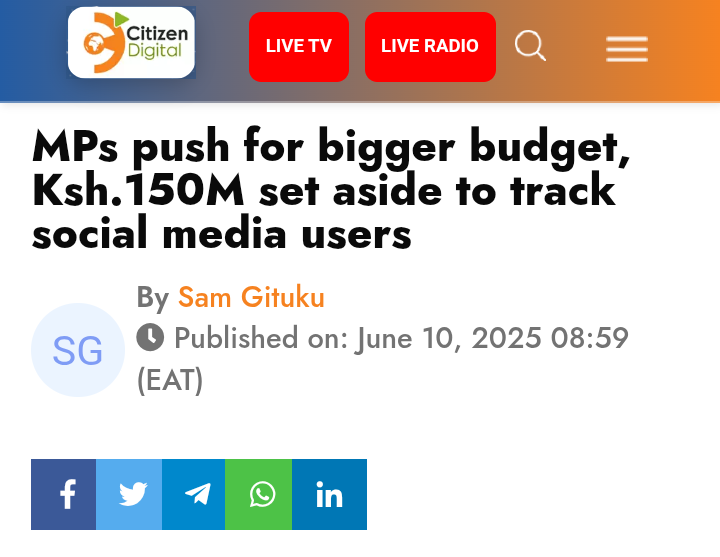Treasury Cabinet Secretary John Mbadi has come under fire after it emerged that the government has already allocated Sh150 million to the Directorate of Criminal Investigations for a social media surveillance system known as Optimus 3.0.
This move has sparked widespread criticism from civil society, activists, and ordinary Kenyans who see it as a blatant attempt to silence public dissent and monitor citizens instead of addressing the country’s worsening economic crisis.
The allocation is buried in the 2025/2026 national budget and has raised alarm over the state’s growing interest in digital surveillance. Optimus 3.0 is reportedly a sophisticated system meant to monitor, analyze, and track the activities of social media users across platforms such as Twitter, Facebook, TikTok, and Telegram.
Its main target appears to be individuals and groups expressing dissatisfaction with the government’s performance, exposing corruption, or mobilizing for public protests.
The fact that Mbadi approved and allocated such a large amount of public funds for surveillance at a time when hospitals lack medicine, students are out of school due to high fees, and millions of youths are unemployed has been described as shameful and misplaced.

It reflects a government more concerned with controlling narratives than solving the real issues affecting the people. Instead of investing in productive areas like healthcare, agriculture, or youth empowerment, Mbadi has chosen to bankroll spying on citizens who are simply demanding accountability.
Critics are questioning the real intention behind Optimus 3.0 and whether this system is a disguised tool for political repression. There is growing concern that DCI will use the tool not just for crime prevention, but to monitor bloggers, digital activists, and opposition supporters.
This development is reminiscent of tactics used by authoritarian regimes to clamp down on free speech and maintain power through fear.
Human rights groups have described the allocation as a dangerous shift towards a surveillance state where expressing opinions online could lead to harassment, arrest, or blacklisting. The Constitution of Kenya guarantees the right to privacy and freedom of expression, and many see this move as a direct violation of those rights.
Legal experts warn that unless checked, such digital surveillance systems could be abused to suppress dissent ahead of the 2027 general elections.The Sh150 million allocation has also raised suspicions of corruption.

Questions are being asked about who is supplying the Optimus 3.0 system, whether procurement will be transparent, and whether the figures were inflated.
Given Kenya’s history of tech-related scandals, there is fear that this is another avenue to loot public funds under the guise of national security.By approving and allocating money for a social media spying tool, John Mbadi has exposed the government’s fear of criticism and its disturbing readiness to suppress voices instead of solving problems.
While Kenyans cry out for jobs, lower taxes, and affordable living, their leaders are busy building tools to track their tweets.


